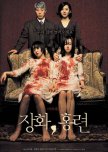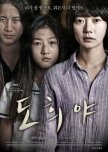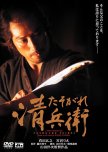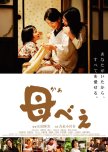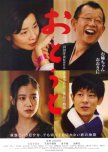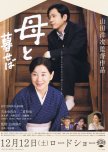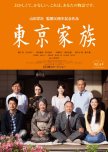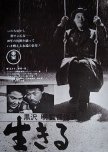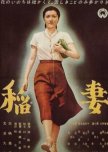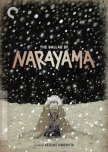- Italiano
- English
- magyar / magyar nyelv
- dansk
- Titolo Originale: 宗方姉妹
- Conosciuto Anche Come: Munekata Kyodai , Munekata Kyoudai , 細雪 , ささめゆき , Light Snow
- Regista: Ozu Yasujiro
- Sceneggiatore: Noda Kogo
- Generi: Vita, Drama
Cast & Ringraziamenti
- Takamine Hideko Ruolo Principale
- Tanaka Kinuyo Ruolo Principale
- Ryu ChishuMunekata TadachikaRuolo di Supporto
- Kawamura Reikichi[Sangin's guest]Ruolo di Supporto
- Takasugi SanaeMashita YorikoRuolo di Supporto
- Yamamura SoMimura RyosukeRuolo di Supporto
Recensioni

"Being new is all about not getting old"
The Munekata Sisters is an Ozu Yasujiro film based on a novel serialized in a newspaper which gave it a slightly different flavor than the typical Ozu film. There was still his usual battle between a traditional lifestyle and the encroaching modernized world. This time the conflict between old and new took place between two sisters.Energetic Mariko lives with her older sister Setsuko and drunken, sullen, unemployed brother-in-law Mimura. After reading Setsuko’s diary she realizes that her sis is not only in a loveless marriage but lost out on her true love 15 years ago. True love Hiroshi is back in town and Mariko begins spending time with him. While Mariko wants Hiroshi and Setsuko to reunite, her very traditional sister would never consider such a thing.
Tanaka Kinuyo played the mature, well-spoken, dutiful wife in a kimono. Despite the fact that her husband barely gave her the respect the lowliest servant would receive she kept her cool and served him politely. Takamine Hideko turned on her 100-watt smile and injected Mariko with boundless effervescence. Mariko wore high heels, nail polish, and western style clothing and hated old-fashioned things while Setsuko loved visiting gardens and temples. Uehara Ken’s Hiroshi was harder to pin down. He was amiable but not terribly decisive and tended to go with the flow. Dependable Ozu regular, Ryu Chishu played the father but was only in a couple of scenes. The father’s most important advice was for his daughters to be true to themselves whatever that might be. Ozu never was concerned with actor’s ages, Ryu was only 5 years older than his “daughter”, Tanaka. With 15 years between them Tanaka’s relationship with Takamine felt more motherly than sisterly. I kept hoping one of Ozu’s trains would run over Yamamura So’s Mimura. “A wife’s the epitome of stupidity…just a convenient tool. Like a doorbell...The problem is drinking and doing nothing is hard to give up.” I cheered when fearless Mariko stood up for her long-suffering sister. The old ways were simply too deeply ingrained in Setsuko which could be incredibly frustrating for a modern viewer.
The Munekata Sisters stretched Ozu a little out of his comfort zone with more overtly emotional scenes. The comedy worked for the most part with the exception of Mariko’s overused kodan style of storytelling. Still in play were Ozu’s meditative scenes of architecture and a father quietly appreciating a nightingale’s song. Ozu tried to show that both the old and new had value and that fads that changed within a short time were not as important. As Mariko said about she and her sister, “We grew up in two different worlds.” With the ending Ozu provided I’m not sure he made the case for outdated things still being relevant, though the impacted character was true to herself.
9 September 2024
Questa recensione ti è stata utile?

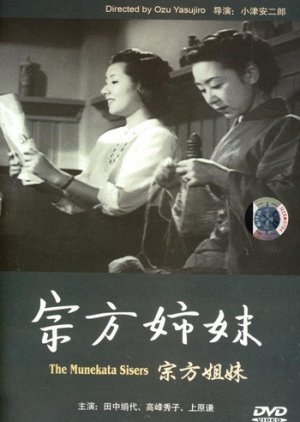

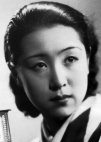

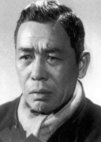


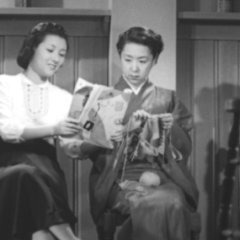
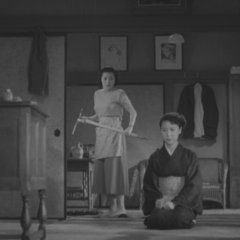
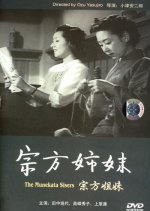
 1
1




